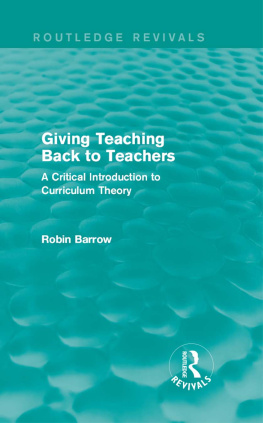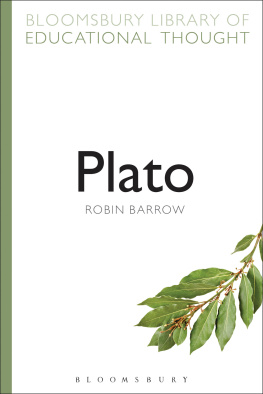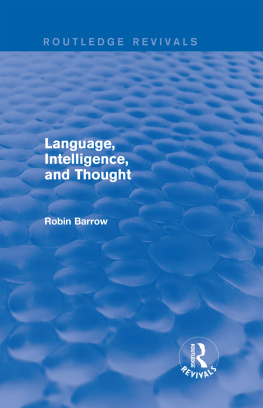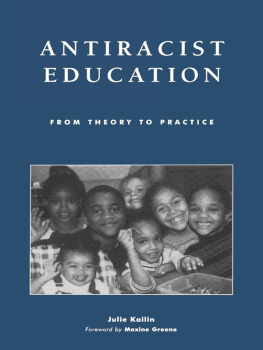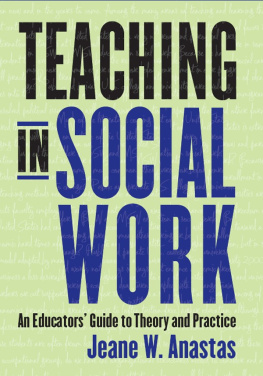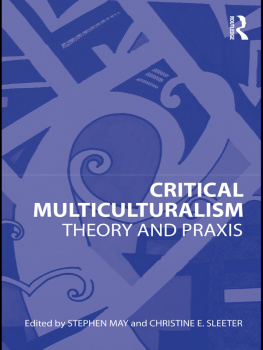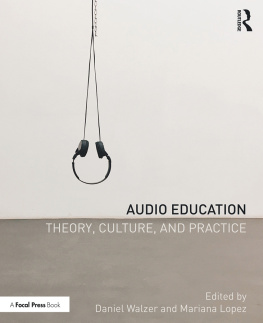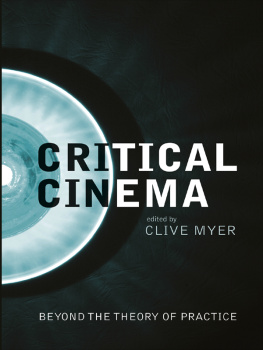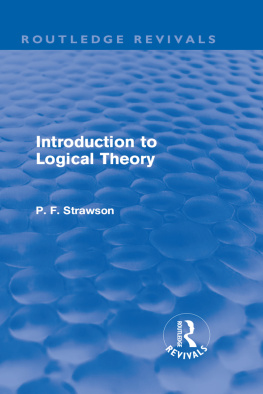
Routledge Revivals
Giving Teaching Back to Teachers
This book, first published in 1984, aims to bring together the interests of the theory and practice of the education system and, within the former, relate the approaches and claims of the constituent disciplines to each other. Throughout the book, while arguing for the importance of facing up to the logical links between theory and practice, the author seeks to point out the extent to which more educational theory has had little to say of importance for practice, either because it has been a poor theory or because it has concerned itself with matters of little significance to educators. This book will be of interest to students of education, as well as educators themselves.
Giving Teaching Back to Teachers
A Critical Introduction to Curriculum Theory Robin Barrow
Robin Barrow

First published in 1984
by Wheatsheaf Books
This edition first published in 2015 by Routledge
2 Park Square, Milton Park, Abingdon, Oxon, OX14 4RN
and by Routledge
711 Third Avenue, New York, NY 10017
Routledge is an imprint of the Taylor & Francis Group, an informa business
1984 Robin Barrow
All rights reserved. No part of this book may be reprinted or reproduced or utilised in any form or by any electronic, mechanical, or other means, now known or hereafter invented, including photocopying and recording, or in any information storage or retrieval system, without permission in writing from the publishers.
Publishers Note
The publisher has gone to great lengths to ensure the quality of this reprint but points out that some imperfections in the original copies may be apparent.
Disclaimer
The publisher has made every effort to trace copyright holders and welcomes correspondence from those they have been unable to contact.
A Library of Congress record exists under LC control number: 84014468
ISBN 13: 978-1-138-92289-1 (hbk)
ISBN 13: 978-1-315-68543-4 (ebk)
Giving Teaching Back to Teachers
A Critical Introduction to Curriculum Theory
Robin Barrow
First published in Great Britain in 1984 by
WHEATSHEAF BOOKS LTD
A MEMBER OF THE HARVESTER PRESS GROUP
16 Ship Street, Brighton, Sussex
and in the USA by
BARNES & NOBLE BOOKS
81 Adams Drive, Totowa, New Jersey 07512
Robin Barrow, 1984
British Library Cataloguing in Publication Data
Barrow, Robin
Giving teaching back to teachers.
1. Curriculum planning
I. Title
375.001B1570
ISBN 0-7108-0269-2
ISBN 0-7108-0274-9 Pbk
Library of Congress Cataloging in Publication Data
Barrow, Robin.
Giving teaching back to teachers
1. Curriculum planning. 2. Curriculum evaluation.
I. Title
LB1570.B329 1984375. 00184-14468
ISBN 0-389-20524-9
Typeset in 10/11pt English Times by Megaron Typesetting
Printed in Great Britain by
Whitstable Litho Ltd, Whitstable, Kent
All rights reserved
for Huw Lloyd,
Whose time it is,
and
Mike Stephens,
Whose time I hope it will never be.
But most of all for
Alexandra
By the end of the 1970s it was possible to say that curriculum design was at least on the threshold of emerging as an applied science.
(David Pratt)
A man of true science uses but few hard words and those only when none others will answer his purpose; whereas the smatterer in science thinks that by mouthing hard words he understands hard things.
(Hermann Melville)
Had he but spared his tongue and pen
He might have rose like other men;
But power was never in his thought,
And wealth he valued not a groat;
Ingratitude he often found,
And pitied those who meant the wound;
But kept the tenor of his mind
To merit well of human kind;
Nor made a sacrifice of those
Who still were true, to please his foes.
He laboured many a fruitless hour
To reconcile his friends in power;
Saw mischief by a faction brewing,
While they pursued each others ruin.
But, finding vain was all his care,
He left the Court in mere despair.
(Jonathan Swift)
Contents
I should like to thank Dianne Common, Suzanne De Castell, Kieran Egan, Cornel Hamm, Tasos Kazepides, Ron Marx and Jaap Tuinman for their help in a variety of ways (Faculty of Education, Simon Fraser University). Others in North America whose work or oral communications have helped me include: Roi Daniels, Jerry Coombs and George Tomkins (UBC), Geoff Milburn, John McPeck, Don Gutteridge, Jim Sanders, Barbara Houston, Garth Lambert, Bob Clark and Bob Gidney (UWO), David Pratt (Queens), Ken Osborne (Manitoba), Bill Hare (Dalhousie), Louis Rubin (Illinois), Kenneth Strike (Cornell), Ira Steinberg (Oberlin), David Nyberg (Buffalo), Dennis Raphael (OISE), Pirie Mitchell (London, Ontario) and Hilda Borko (Virginia Tech).
Those working in Australia and New Zealand to whom I owe something include: Jim Gribble (New South Wales), James Marshall (Auckland), Richard Kamman (Otago), John Kleinig (Macquarie), Mike Degenhardt (Tasmania) and Ross Gilham (Timbertop). I am particularly indebted to Peter Hobson, a charming and thoughtful man (New England).
I should like to take this oportunity of formally acknowledging what I owe to many friends and colleagues in Britain; at the University of Leicester I gained a great deal from working for many years with Ron Woods, a man whose increasing disillusion obscured an acute intelligence. I also profited from contact with Geoffrey Bantock, Gerald Bernbaum and Margaret Mathieson. My thanks also, for a variety of reasons, to Paul Hirst (Cambridge), David Pears, Peter Parsons and David Lewis (Christ Church, Oxford), John Gould (Swansea), Jack Wrigley, Raymond Wilson, Antony Flew and Roger Straughan (Reading), Robert Dearden (Birmingham), David Aspin (Kings, London), Richard Peters, Denis Lawton, John and Pat White and John Sharwood Smith (Institute of Education, London), David Bridges (Homerton, Cambridge), Brenda Cohen (Surrey), Ian Gregory (York), John Gingell (Nene College), Hugh Sockett (UEA), John Colbeck (Goldsmiths), Phil Snelders (Scraptoft), Glynn Phillips (Westminster College), Guy Claxton (Chelsea), Olive Stevens and Colin Brown (Avery Hill), John Wilson (Dept of Education, Oxford), Austin Greer (Matlock), Paul Croll, who will hate this book (Bristol Polytechnic), Di Moses (NFER), Sara Delamont (Cardiff), Peter Gilroy (Sheffield), Victor Quinn (Bretton Hall), Colin Wringe (Keele) and Beverley Shaw (Durham).
To many generations of students I am, as any teacher is likely to be, indebted. I should like to mention in particular my MA Philosophy of Education class 1981-3 (Leicester), Curriculum 823 and 901, 1982-3 (SFU), Ruth Jonathan (now at Edinburgh), Nigel Blake (Open University), Christine Tubb (Homerton), Neil Richards (Bramshill), Peter Shirley and Mike Deane White.
I have much enjoyed my contacts with Hong Woo Lee (Seoul, Korea).
On a more personal note, I thank John Goodbody, Alex Marshall, Peter Fearon, Terry Johnson, Derek Layder, Michael Brown, Peter Golding, Robin McCron, Rob Colls, Paul Dimmer, Patrick Gallagher, Edward Elgar, Neill Ross, Stephen Wagg, Peter Wells, Bruce Phillips, James Watson, Ken Hughes, David Morrison and Henry Karsch.
This time, I may have bitten off more than I can chew. But it seems worth the risk, because somebody has got to start doing what for years educationalists have
Next page
